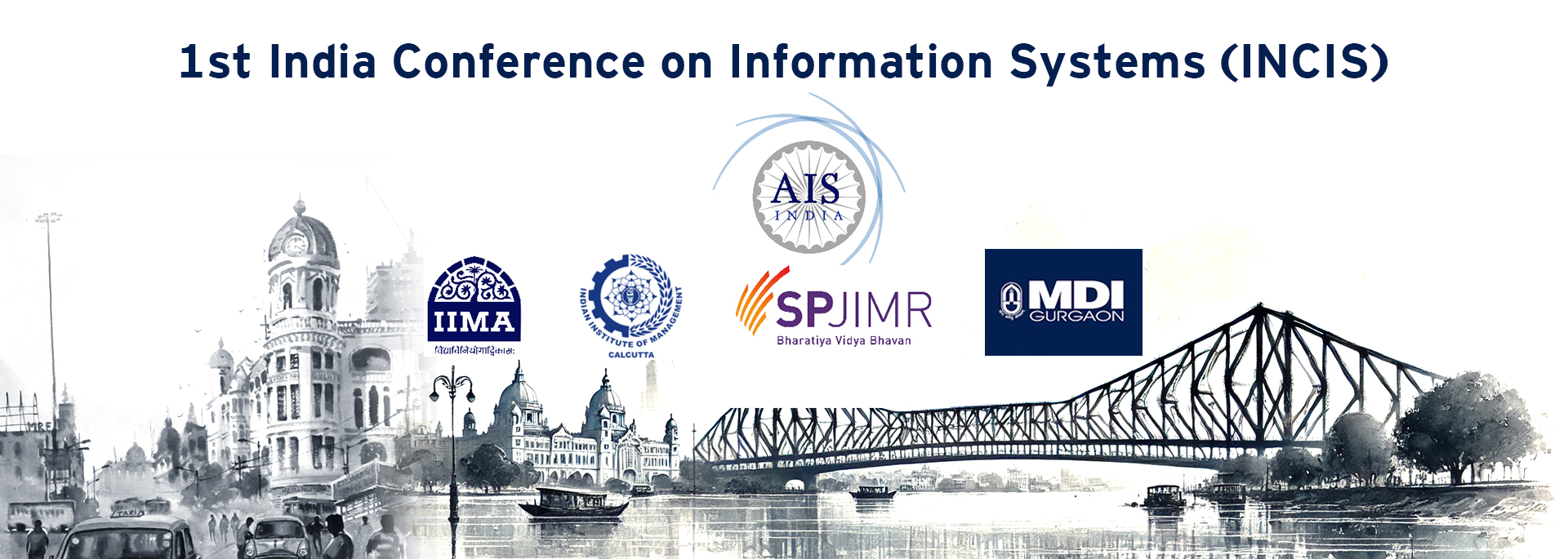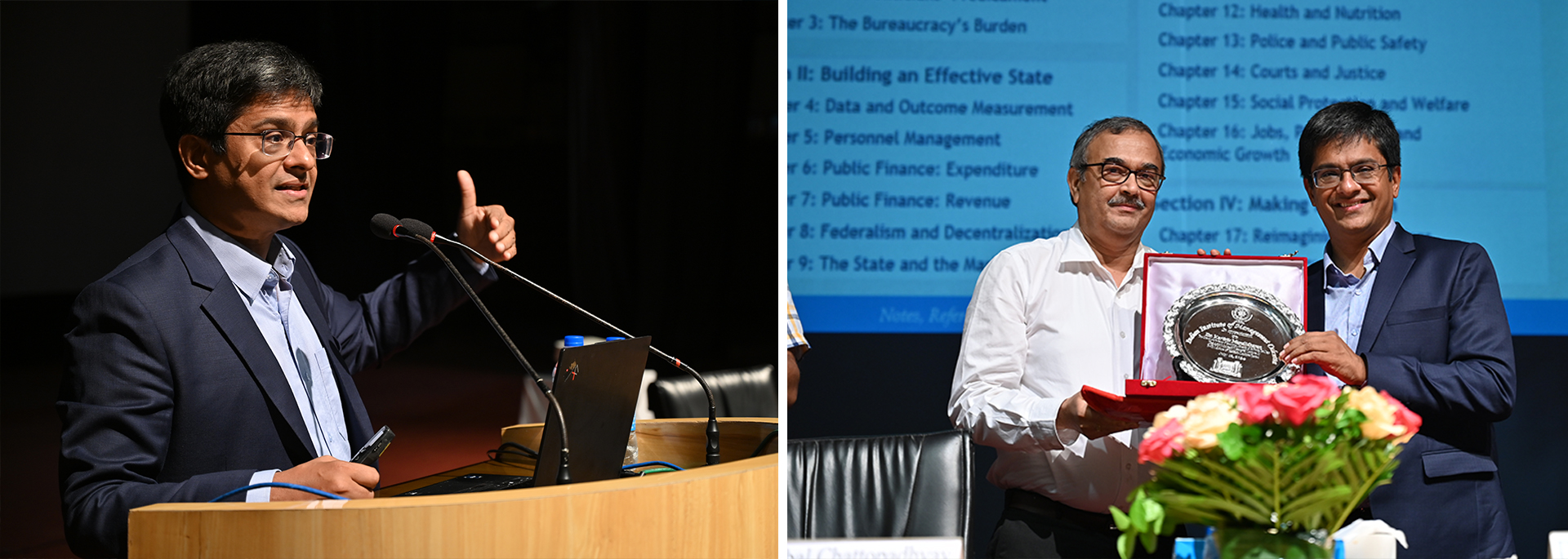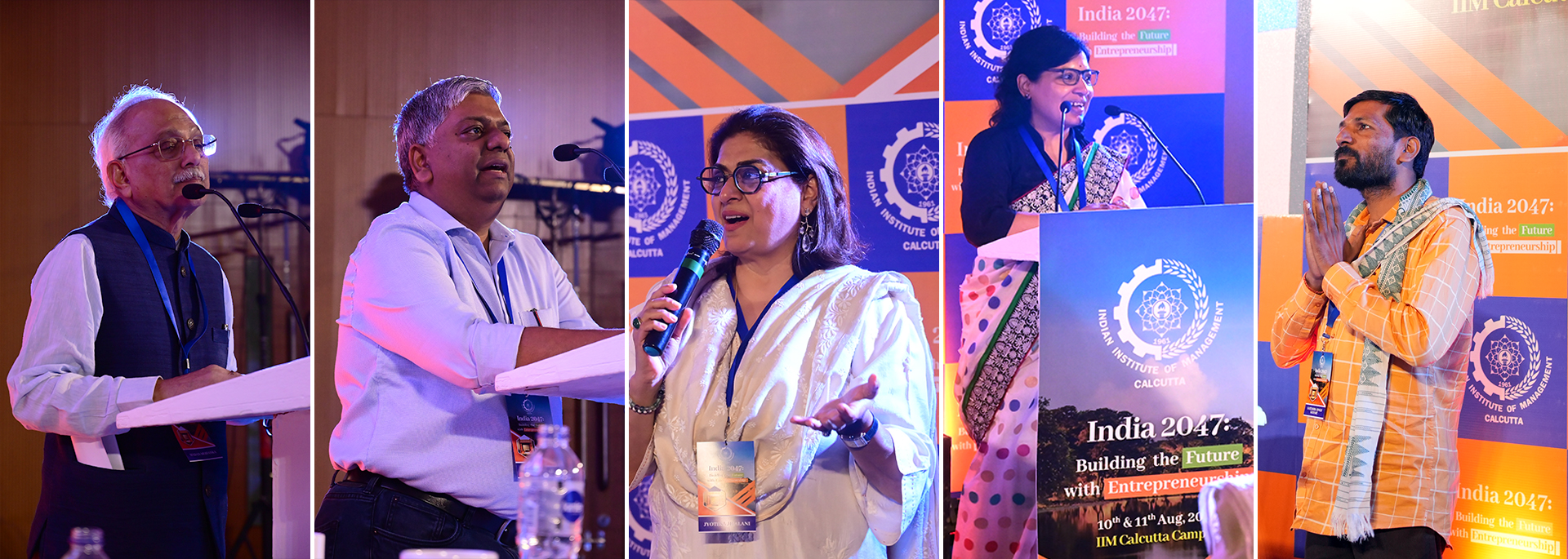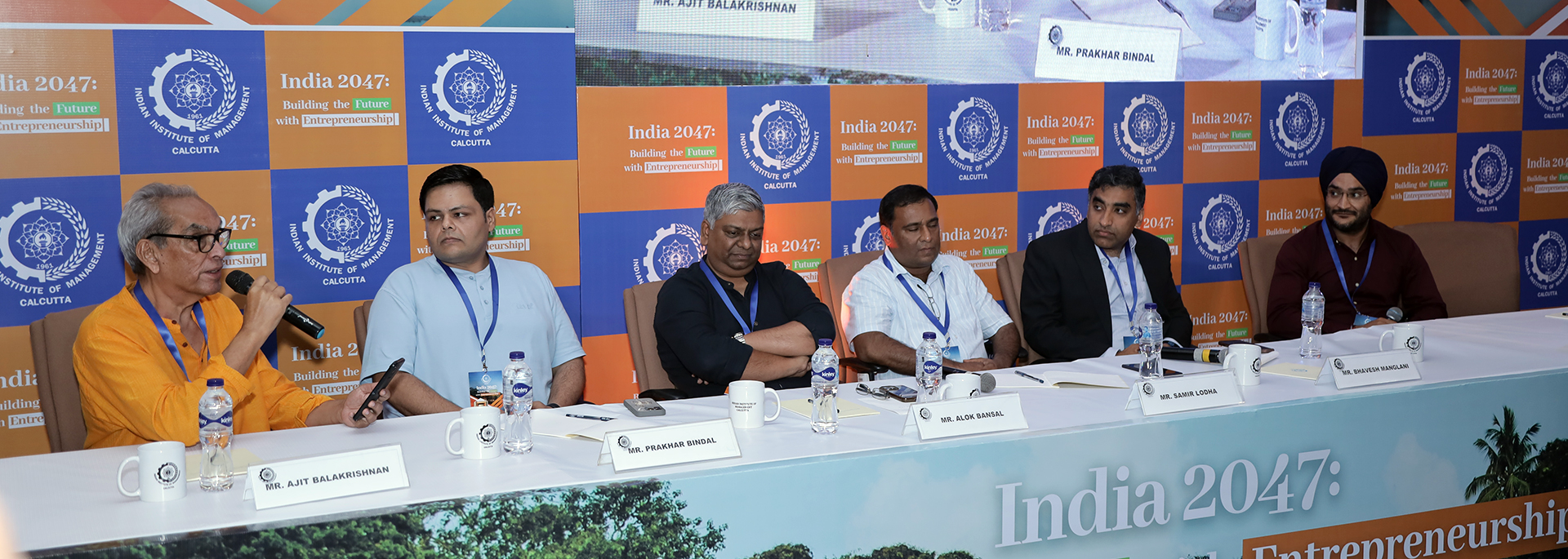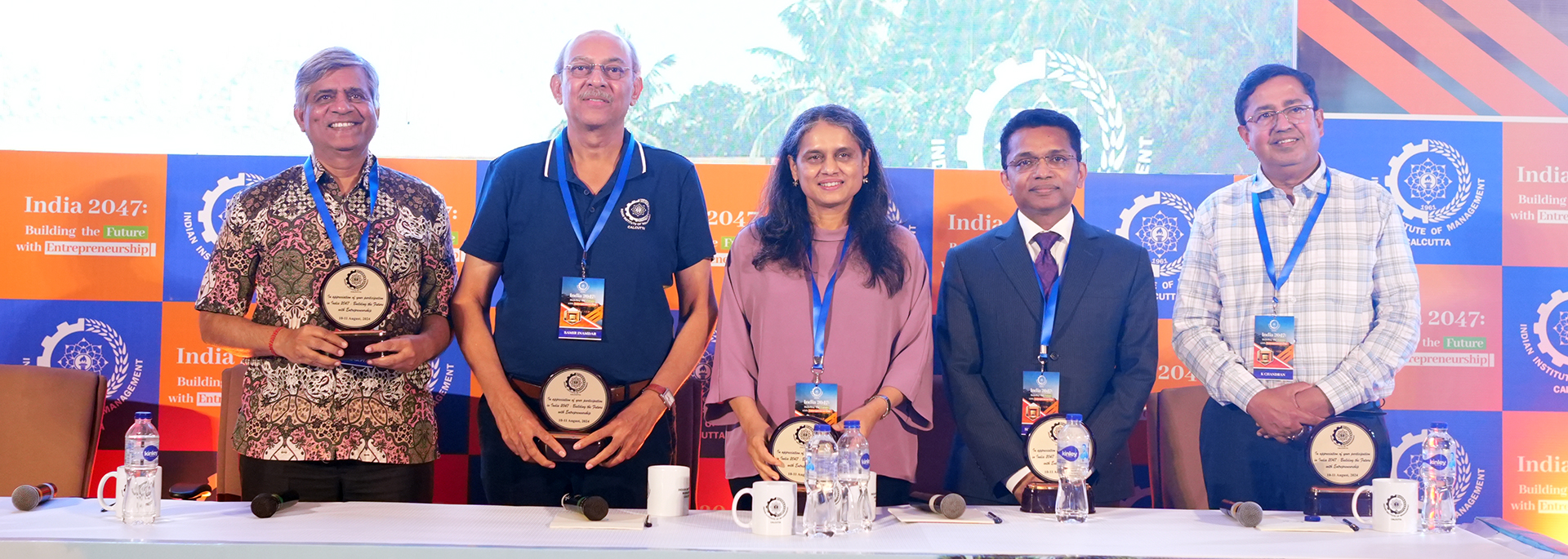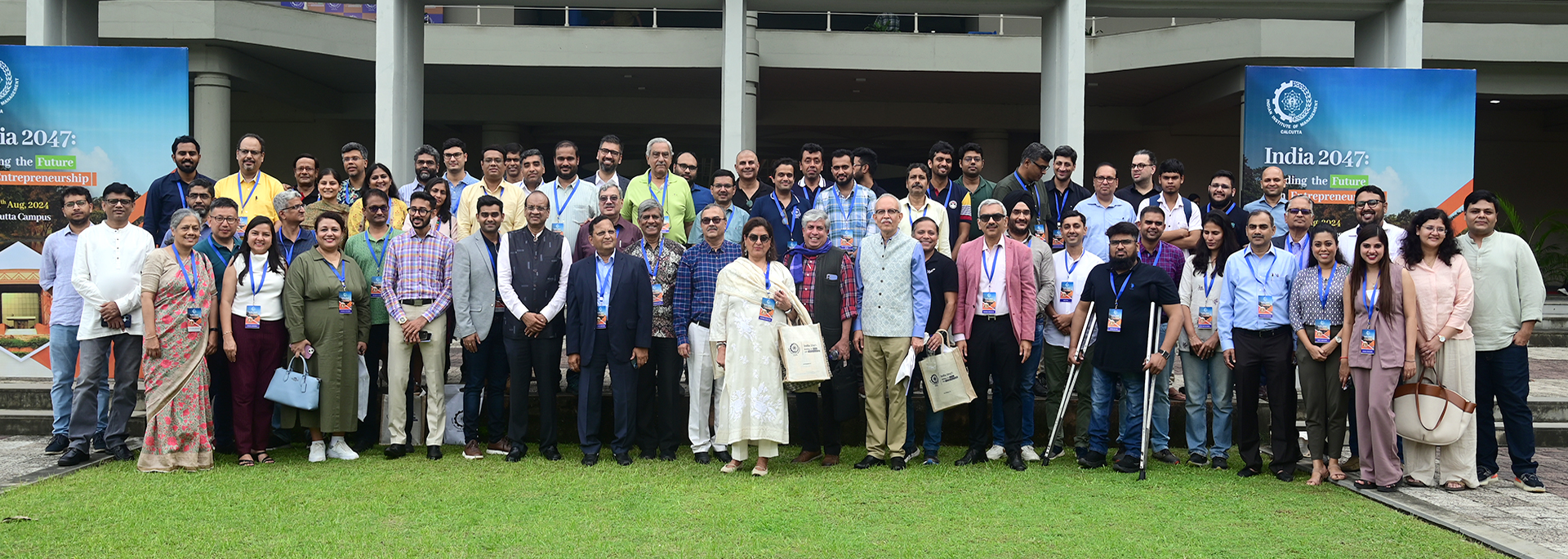The Centre for Development of Environment and Policy (CDEP) and Indian Institute of Management Calcutta – Case Research Centre (IIMCCRC) invite you to participate in the 2022 Global Case Writing competition on Carbon Transition and Business.
About CDEP:
IIM Calcutta's Centre for Development and Environment Policy (CDEP) was established in 1998 as an interdisciplinary platform. Supported by a core endowment provided by the Indian Planning Commission, CDEP addresses crucial interdisciplinary issues associated with the complex relationship between economic activities and the natural environment. It undertakes research, teaching, and training activities on the important dimensions of the relationship between environment and development at the organisational, regional, national, and global levels. It has developed a close working relationship with policymakers in Indian industry, government, NGOs, and international organisations related to sustainable development.
About IIMCCRC:
The IIM Calcutta’s Case Research Centre (IIMCCRC) was established in 2012 as one of the distinct centres of excellence. The centre's objective is to create a world-class repository of cases and teaching notes that can be used by faculty members, academicians and practitioners in India and abroad. The centre has constantly developed cases based on key industry challenges and success stories. IIMCCRC has close ties with the Indian business community and enjoys an inherent advantage in developing cases in the Indian context and that of other emerging markets. Since its set up, the IIMCCRC has served as the incubation center for several case studies with leading Indian companies. The centre has been active in developing cases and conducting workshops focusing on case writing and teaching.
Objective:
The larger aim of this case study competition is to create knowledge bases on accomplishing an effective and just carbon transition. The competition is a means to document carbon transition initiatives taken by the business enterprises and disseminate how public and private (energy) firms can adapt to the energy transition. At the same time, we hope that young professionals entering the workforce will be sensitised to the ideas of carbon transition, which may change the business landscape. The centre envisions that the case studies will help to develop alternate pathways towards the transition to low carbon for India and developing countries.
Themes and coverage:
Participants are encouraged to write and submit a business case study on any of the following themes:
- Energy firms diversifying into the non-carbon business domain
- Carbon transition experiences of firms
- Choosing a carbon transition strategy
- Just transition
- Technology transfer experiences for a green transition
- Experiences of investing in clean energy
- Fossil asset portfolio management, accessing green finance
- Policy initiatives for promoting green transition
- Reduction in production and consumption of fossil fuels
Kindly write to us at cdepiimc@iimcal.ac.in if you need any clarification on the above.
Case Type:
To document and promote experience-based learning of business firms, CDEP-IIMCCRC invites empirical (teaching) cases in the broad area of carbon transition.
Prizes:
- 1st Prize - USD 1200
- 2nd Prize - USD 800
- 3rd Prize - USD 500
In addition, the fourth and fifth best cases would find an honourable mention (awarded with a certificate of excellence) with a consolation prize of $150 each.
The IIM Calcutta Case Research Centre (IIMCCRC) will also provide participants an opportunity to publish the top five cases. The submitted case should be original work and should not be published or under consideration for publication with any other case publishing house or journal. All the submissions will be subject to plagiarism and similarity checks via Turnitin software. For publishing with the IIM Calcutta Case Research Centre (IIMCCRC), the authors need to sign an exclusive distribution right assigned to IIM Calcutta (i.e., transfer the copyright fully to IIMCCRC). The author/s need to accept the responsibility of the data published in the case; for example, in the case of primary data obtained from a company, they need to assure the correctness of the data and get a "consent form for the use of case" (in the prescribed format) signed by the company. There will be no future honorarium or royalty payments for authors of the winning (and honourable mention) cases published by IIMCCRC. The cases selected for publication would undergo a blinded peer-review process, and the author/s need to respond or make suitable adjustments as per the reviewers' advice.
Who can participate:
Individual graduate/postgraduate/doctoral students or student teams across any university, college, or institute in India or abroad can participate in this competition. In addition, industry practitioners, researchers, faculty members, or instructors (as individuals or as a team) could send in their entries for the competition.
Important Dates:
| April 15, 2022 | Last date for submitting Intent-to-Participate Form |
| June 30, 2022 | Submission of the case study and teaching note |
| August 2022 | Announcement of results |
| Orientation Webinar | Interested participants can attend a webinar on 21 March, 2022, from 16:00 – 17:30 HRS (IST) |
The webinar will provide a deeper insight into the scope of coverage and provide practical tips for drafting a business (teaching) case and teaching notes. The participants could also seek clarification on their ideas for the case-study competition. The participants could register themselves for the webinar via: Registration Link. The invitation to join the webinar would be sent to all the registered individuals.
Intent to Participate Form:
We request all the interested participants to complete the Intent-to-Participate form and submit it to cdepiimc@iimcal.ac.in no later than 15th of April 2022. Kindly note that only the Intent-to-Participate form is due on 15th of April 2022, NOT your completed case documents. The Intent-to-Participate form would allow us to have a preliminary evaluation of the case suitability and, if required, provide feedback on the scope of the proposed case study. This is also to vet and assess the preparedness level of the participants (e.g., if the organisation's consent for the proposed case study is secured and if a final organisational release form could be arranged at a later/final stage).
The following forms could be accessed at:
- Intent to Participate form (to be submitted on or before 15th of April 2022)
- Organisational Release Form* (To be submitted along with final case study on or before June 31, 2022). The sample organisational release form could be found here.
* If the case is based on publicly available secondary data, no organisational release form would be required. However, the author/s must submit the intent-to-participate form before the stipulated deadline.
Deadline for Submission of all Documents:
The following documents must be submitted to cdepiimc@iimcal.ac.in by June 30, 2022, 23:59 HRS (IST).
- Case Study (Microsoft Word/PDF document) (Do not include any information about the author/s name/affiliation etc.)
- Teaching Note (Microsoft Word/PDF document) (Do not include any information about the author/s name/affiliation etc.)
- Completed Submission Form having the author/s details
- Organisational Release Form (If you are using primary data from an organisation, the appropriate authority from the organisation must sign IIM Calcutta-Case Research Centre Publishing's Organisational Release Form). For cases where the organisation's identity is masked, the author/s would still need to secure the Organisational Release Form in the format provided by the IIMCCRC. No Organisational Release Form is required for cases based on publicly available information.
Format of the case:
CDEP-IIMCCRC has prepared a summary of the style guide for drafting the main case and the teaching notes. The details can be accessed at the following link: Style Guide
Submission guidelines:
The author/s should adhere to the following guidelines:
- All submitted cases should include a teaching note
- The final case study/teaching note should be submitted online in MS Word Format/PDF, Times New Roman, Font Size 12, Line Space 1.5, Centred
- While there is no upper limit for the word count, the authors are advised to be judicious and write in a concise, succinct form
- Rather than footnotes, the authors are encouraged to use endnotes
- All the annexures should be numbered and suitably referred to in the main text or body of the case
- The references should be in Harvard Style
- The secondary information should be from a reputed and verifiable source
Broad Judging Criteria for the Case and the Teaching Notes
- Topic/Content
- The protagonist and/or the case dilemma focus on carbon transition and allied topics.
- Teaching/Learning Value
- Potential to engage students in active learning and opportunities it offers to analyse/solve or reflect on business challenges or issues related to carbon transition
- The case discussion requires higher-order complex thinking, going beyond mere comprehension of the case content.
- Introduction/Overview/Protagonist/Organisation
- Outline of the problem to be examined and its ability to raise curiosity and interest among the readers.
- Quality of introduction for the protagonist, key decision-makers with their role in the organisation, presentation of contextual information providing parameters or limitations for decision makers.
- Relevant background information about the organisation (e.g. mission, revenue statement, culture, geographic location etc.)
- Dilemma
- Early and clear identification of dilemma or the decision point along with specifics and time frame (e.g. having a clear cut-off date or year)
- Potential to discuss the applicability beyond the immediate situation mentioned in the case.
- The quality of specific discussion questions to address the issue or solve the case.
- The degree of challenge provided to analyse the situation and the potential to develop multiple or integrative solutions.
- Format/Writing/Teaching Note
- An appropriate length of the case, exhibits and teaching notes which justify the complexity of situational context described in the case.
- Quality and comprehensiveness of teaching note with focus on clear teaching objectives, discussion of specific questions, pedagogy, and case analysis.
- Quality of writing which is free from structural, grammatical, spelling and other typographical errors.
For any clarifications, please e-mail your queries to cdepiimc@iimcal.ac.in


